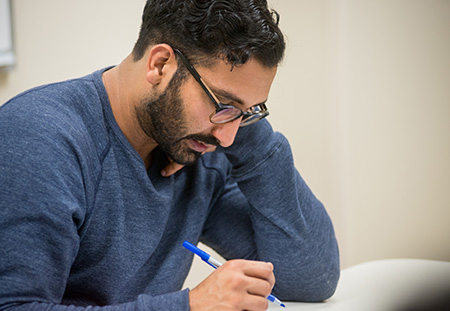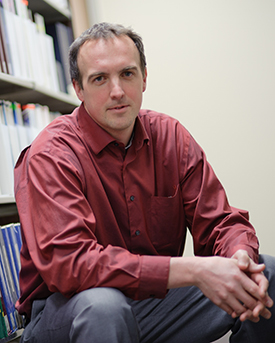 A new study by the University of British Columbia shows that teachers don’t have to test everything they want their students to remember – as long as the knowledge they want to convey fits together well, and the test questions are well-chosen.
A new study by the University of British Columbia shows that teachers don’t have to test everything they want their students to remember – as long as the knowledge they want to convey fits together well, and the test questions are well-chosen.
The finding, based on an experiment with UBC pharmacy students, builds on a proven phenomenon known as “retrieval-enhanced learning” – that the very act of recalling something reinforces it in a person’s memory. But that phenomenon also has stoked fears, demonstrated in a few recent studies, of “retrieval-induced forgetting” – that items not included on a test can be purged from students’ memories.
The UBC study, published May 26 in Advances in Health Sciences Education, suggests a way to strengthen students’ memories of new knowledge without causing “assessment fatigue.”
Researchers asked more than 150 second-year pharmacy students to study a 67-slide PowerPoint file about gastroesophageal reflux disease and peptic ulcer disease – a subject relevant to their studies but not yet covered in the curriculum. Each slide contained “bullet points” typical of slides used for university lectures.
Some students were asked to study the slides for 30 minutes in anticipation of being tested on it two weeks later. Other students were asked to study the slides for 20 minutes, with the remaining 10 minutes devoted to a 10-question quiz about the material.
Two weeks later, both groups took a larger test that included the original 10 questions, plus 30 more: 10 that were about the slides, 10 about other medical conditions not covered by the slides, and 10 more general questions about basic physiology and drug characteristics (also not covered by the slides). Most questions were multiple choice, with a couple of true/false items.
As expected, the group that took the preliminary quiz a couple of weeks before did better – 22 per cent better – on the questions that were repeated in the larger test. But that group also performed 19 per cent better on other questions based on the slides even though they were not included on the preliminary quiz.
On the other questions that were not specifically about reflux disease and peptic ulcer disease, there was no statistically significant difference between the two groups’ performance.
From those results, the researchers conclude that knowledge – whether it’s about health, law, history or anything else – doesn’t have to be tested to be remembered, if it’s closely intertwined with knowledge that is being tested.
“The accumulated evidence of retrieval-enhanced learning has led some educators to assert that comprehensive testing is the best way to get students to remember knowledge,” said lead author Kevin Eva, a Professor in the Department of Medicine and Associate Director of UBC’s Centre for Health Education Scholarship. “But that could lead to valuable class time being eaten up by assessments, creating undue stress and strain for students.”
To maximize the effectiveness of testing, Dr. Eva says, course material needs to be well-integrated – each piece should be presented as part of a larger whole, not as a collection of disconnected details. In addition, test questions should be representative of the entirety of the material that instructors want students to retain.
“Students are more likely to forget untested items in a curriculum of disassociated facts,” Dr. Eva says. “So teachers need to do their homework, and make sure that what they teach comes together into a bigger, comprehensible whole.”
